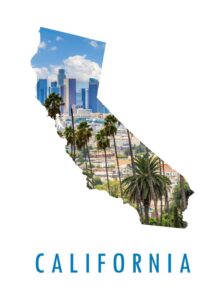Liquor Licensing Laws: Sale and Distribution –
In the world of commerce and consumerism, the sale and distribution of alcoholic beverages is a highly regulated sector, subject to a multitude of laws and regulations at the federal, state, and local levels. These laws are put in place to ensure public safety, maintain social order, and control the consumption and distribution of alcohol. One pivotal aspect of this regulatory framework is liquor licensing laws, which govern the establishment, operation, and oversight of entities involved in selling or distributing alcoholic beverages.
Understanding the Purpose of Liquor Licensing Laws
The primary purpose of liquor licensing laws is to strike a balance between enabling economic activity related to the sale and distribution of alcohol and safeguarding public health and safety. By regulating the sale and distribution of alcoholic beverages, these laws aim to prevent underage drinking, reduce instances of alcohol-related accidents, and maintain community standards.
alcohol and safeguarding public health and safety. By regulating the sale and distribution of alcoholic beverages, these laws aim to prevent underage drinking, reduce instances of alcohol-related accidents, and maintain community standards.
Liquor licensing laws typically cover a wide range of topics, including who can sell alcohol, where it can be sold, the types and quantities of alcohol that can be sold, operating hours, and penalties for violations. These laws may also address specific concerns such as responsible serving practices, advertising restrictions, and zoning regulations related to the location of establishments selling alcohol.
Federal Regulations
At the federal level, the Alcohol and Tobacco Tax and Trade Bureau (TTB) is a key regulatory agency responsible for overseeing the production, distribution, labeling, and advertising of alcoholic beverages. The TTB ensures that federal laws governing the industry are adhered to and enforces compliance with the Federal Alcohol Administration Act (FAA Act) and other pertinent legislation.
The FAA Act requires anyone engaged in the production, distribution, or wholesale of alcoholic beverages to obtain the necessary permits and licenses from the TTB. These permits and licenses regulate various aspects of the industry, including production, importation, distribution, and labeling, to maintain transparency and accountability in the market.
State-Level Regulations
Liquor licensing laws vary from state to state, reflecting the diverse cultural, social, and economic landscapes across the United States. Each state has its own alcohol regulatory authority, such as state alcohol control boards or departments. These entities are responsible for administering and enforcing state-specific liquor laws.
States typically categorize liquor licenses based on the type of business, the nature of the sale (on-premises vs. off-premises), and the types of alcohol being sold (beer, wine, spirits). Common types of liquor licenses include:
1. Retailer’s License: Allows businesses to sell alcoholic beverages to consumers for consumption off the premises.
2. On-Premises License: Permits the sale and consumption of alcoholic beverages on the premises, often at bars, restaurants, or clubs.
3. Manufacturer’s License: Allows for the production and sale of alcoholic beverages directly to wholesalers, retailers, or consumers.
4. Distributor’s License: Permits the distribution and sale of alcoholic beverages to retailers.
5. Caterer’s License: Enables catering services to serve alcohol at events.
The application process for obtaining a liquor license at the state level is rigorous and often involves thorough background checks, financial disclosures, and compliance with zoning regulations. Furthermore, the number of available licenses may be limited in some states, creating a competitive environment among prospective licensees.
Local Regulations
In addition to federal and state regulations, local jurisdictions such as counties, cities, and municipalities have the authority to establish their own liquor licensing laws and requirements. Local regulations can add an additional layer of complexity to the licensing process, as they may include specific zoning laws, proximity restrictions, or requirements for community input.
Local ordinances may also address issues like the density of licensed establishments in a certain area, operating hours, and the concentration of alcohol retailers near schools, churches, or residential neighborhoods. Compliance with these local regulations is crucial for businesses to obtain and maintain their liquor licenses.
Compliance and Enforcement
Once a liquor license is obtained, licensees must comply with all applicable federal, state, and local laws. Compliance includes adhering to regulations related to the sale, storage, and transportation of alcoholic beverages, as well as ensuring responsible service and consumption.
Violation of liquor licensing laws can result in penalties ranging from fines and license suspension to revocation of the license. These penalties are designed to deter violations and maintain high standards of conduct within the industry.
Evolving Landscape
The landscape of liquor licensing laws is constantly evolving, influenced by societal attitudes, public health concerns, and economic considerations. In recent years, there has been a growing trend toward reforming these laws to encourage responsible consumption, support local businesses, and increase revenue for governments.
Reforms may involve updating licensing processes to be more streamlined and accessible, expanding the types of licenses available, allowing direct-to-consumer sales from manufacturers, or permitting alcohol sales in new venues like farmers’ markets and sports arenas. These changes aim to strike a balance between promoting responsible alcohol consumption and supporting economic growth in the beverage industry.
Liquor licensing laws play a pivotal role in regulating the sale and distribution of alcoholic beverages, ensuring that public safety and societal well-being are upheld. From federal oversight by the TTB to state-level regulations and local ordinances, the regulatory framework is intricate and multifaceted.
Compliance with these laws is essential for businesses in the alcohol industry to operate legally, maintain their licenses, and contribute positively to their communities. As the landscape continues to evolve, it is crucial for all stakeholders to stay informed and adapt to changes that impact this dynamic sector of the economy. Contact us to learn more.



